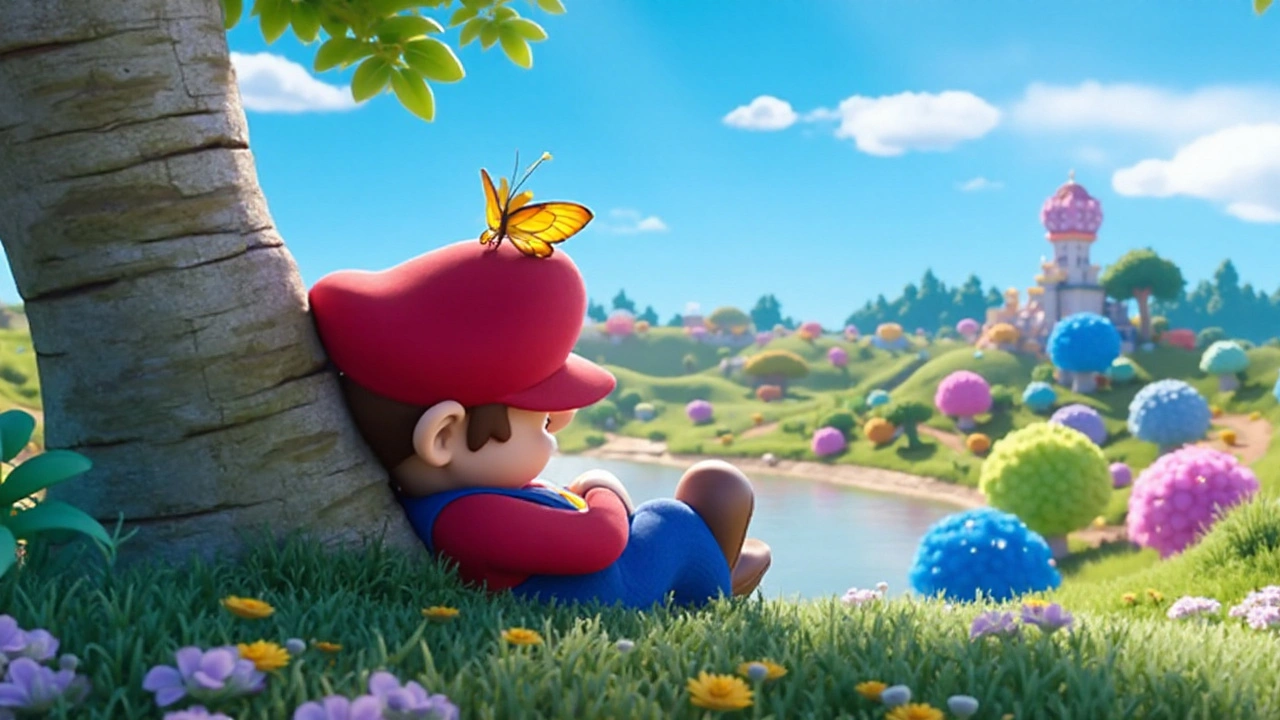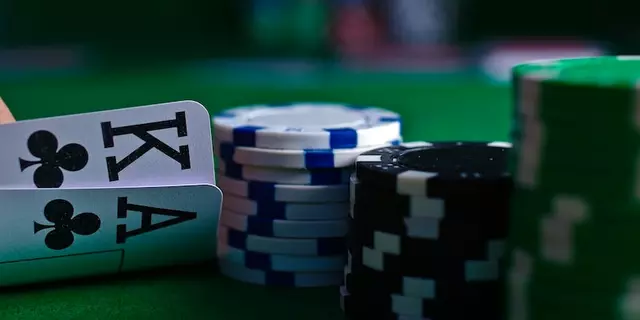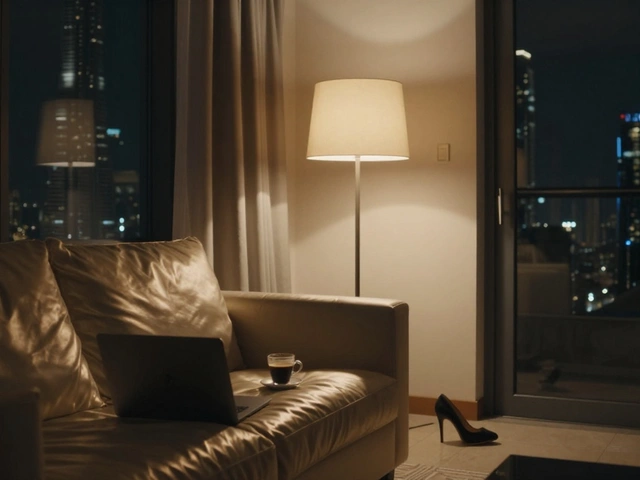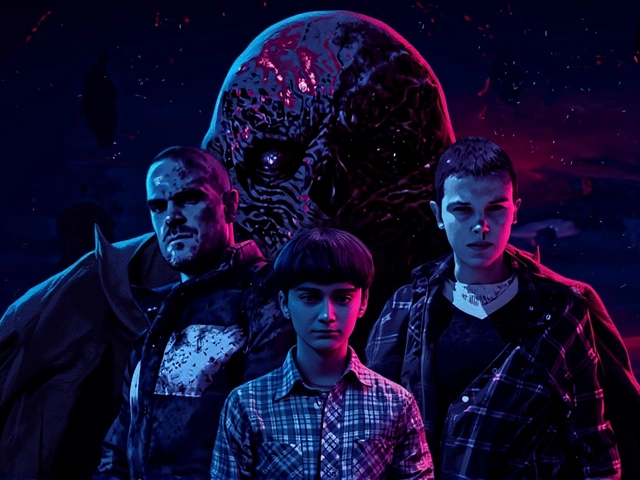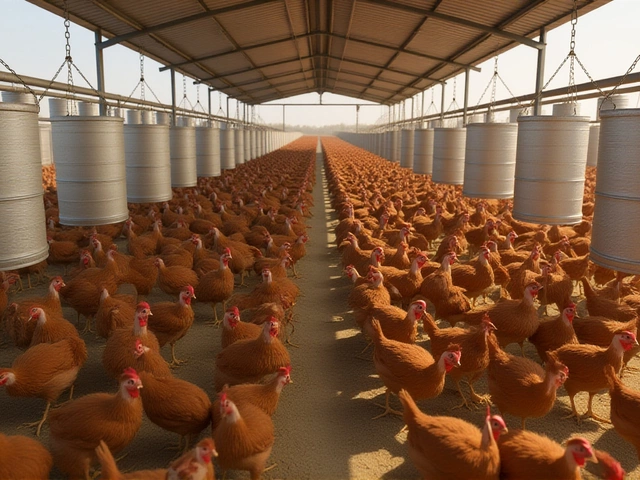Nintendo shoots for the stars with a Galaxy-sized Mario sequel
Nintendo isn’t just making another Mario movie — it’s taking the plumber into orbit. During the Sept. 12 Nintendo Direct, timed to the 40th anniversary of Super Mario Bros., the company officially revealed the title of its next animated feature: Super Mario Galaxy Movie. The film arrives in U.S. theaters on April 3, 2026, with Japan following on April 24, 2026. Illumination and Nintendo are back in partnership, with Universal Pictures handling global distribution.
The move answers a question fans have asked since The Super Mario Bros. Movie smashed the box office in 2023: where do you take a billion-dollar Mario franchise next? The first film earned more than $1.3 billion worldwide and reset expectations for game-to-film adaptations. Going cosmic taps into one of Mario’s most beloved eras — the 2007 Wii classic Super Mario Galaxy and its 2010 sequel — while opening the door to bigger visuals, grander music, and a fresh set of characters.
The creative core returns intact. Directors Aaron Horvath and Michael Jelenic are back after steering the first film to crowd-pleasing success. Matthew Fogel again writes the screenplay, and Brian Tyler returns to score the film. The voice cast is unchanged: Chris Pratt as Mario, Anya Taylor-Joy as Princess Peach, Charlie Day as Luigi, Jack Black as Bowser, Keegan-Michael Key as Toad, and Kevin Michael Richardson. When a sequel keeps the same team, it signals confidence — and a desire to build on what already worked.
This direction wasn’t exactly a secret. The first movie dropped multiple breadcrumbs pointing to space: Peach talked about “other galaxies,” a blue Luma made a bleakly funny appearance in the Bowser prison scenes, and the end credits winked at fans with a blast of Gusty Garden Galaxy music. Those nods now read like a slow roll-out toward an interstellar sequel.
For anyone who skipped the Wii era, the Galaxy games took Mario off the Mushroom Kingdom and into a sky full of planetoids, each with its own gravity. Levels curved and flipped as you leapt from one tiny world to another. The tone was whimsical but surprisingly emotional, anchored by Rosalina, the cosmic guardian who watches over the stars alongside her Luma companions. That combination of toy-box creativity and gentle melancholy is a big reason Galaxy often lands on “greatest of all time” lists.
What the Galaxy storyline means for the film and fans
The Galaxy focus almost guarantees Rosalina will join the cast. Nintendo hasn’t announced her voice actor yet, and we don’t know the story beats, but the template is clear: Bowser reaches for cosmic-scale power; Mario, Peach, and Luigi head into space; Rosalina and the Lumas guide them. Expect a Star Festival, an observatory that doubles as a ship, and gravity-bending platforming gags that only make sense in animation.
Illumination’s style fits this playground. The studio already proved it can juggle slapstick and spectacle. Galaxy’s spherical worlds let animators play with horizon lines, upside-down chases, and action sequences that fold over themselves. Imagine Toad tumbling around a tiny planet while Mario magnetizes to a curved surface — the visual comedy writes itself.
Music could be the secret weapon again. Brian Tyler’s first Mario score blended new themes with classic Koji Kondo motifs and felt right at home with Illumination’s brisk pacing. The Galaxy games set a high bar with orchestral tracks by Mahito Yokota and Kondo, especially the fan-favorite Gusty Garden Galaxy. If Tyler leans into those soaring strings, the movie gets an instant emotional spine.
One trade-off: fans lobbying for Wario and Waluigi may have to wait. The Galaxy titles don’t feature the pair, and a space-focused plot doesn’t make them an obvious fit. Could they cameo? Sure. But if the sequel sticks to the Galaxy blueprint, expect the spotlight to stay on Mario’s core crew, Bowser’s grand plan, and a new ally in Rosalina.
The business logic is straightforward. Galaxy gives Nintendo a clean thematic shift — ground to space — without confusing the broader family audience that showed up last time. It’s still Mario, still bright and funny, but bigger in scale and easier to market: the same heroes, now among the stars. That pitch sells toys, soundtracks, Halloween costumes, and theme-park weekend trips.
The timing is tidy, too. Alongside the announcement, Nintendo said both Super Mario Galaxy and Super Mario Galaxy 2 land on Nintendo Switch on Oct. 2, 2025. That’s six months before the movie — perfect for a refresher or a first playthrough for younger fans. It also extends the 40th anniversary celebration beyond a single Direct into a sustained campaign that reaches theaters and living rooms.
Here’s the snapshot of what’s official so far:
- Title: The Super Mario Galaxy Movie
- Announcement: Nintendo Direct on Sept. 12, 2025 (Mario’s 40th anniversary)
- Release: April 3, 2026 (U.S.), April 24, 2026 (Japan)
- Studios: Illumination and Nintendo; Universal handles distribution
- Directors: Aaron Horvath and Michael Jelenic
- Writer: Matthew Fogel
- Composer: Brian Tyler
- Cast: Chris Pratt (Mario), Anya Taylor-Joy (Peach), Charlie Day (Luigi), Jack Black (Bowser), Keegan-Michael Key (Toad), Kevin Michael Richardson
- Games arriving on Switch: Super Mario Galaxy and Super Mario Galaxy 2 on Oct. 2, 2025
What’s not announced matters, too. No trailer yet. No confirmed new cast members. No details on formats like 3D or IMAX. Illumination tends to roll out first looks close to when toys and tie-in products hit shelves, so expect a teaser window that dovetails with holiday marketing or early 2026 awards-season chatter.
The first film balanced Nintendo’s tight creative control with Illumination’s broad-audience instincts. Expect more of that careful management. Nintendo president Shuntaro Furukawa said years ago the company would expand into animation if the debut Mario movie worked. It did, decisively. The sequel’s unchanged leadership suggests Nintendo liked the process and the result.
For families, Galaxy is a natural sequel path. The core relationships — Mario and Luigi’s brotherly banter, Peach’s leadership, Bowser’s chaotic obsession — all carry over, while space raises the stakes without getting darker. A cosmic setting also solves a sequel’s toughest problem: feeling new. The first film’s Brooklyn-to-Mushroom-Kingdom arc introduced the world. Galaxy lets the story jump off the map.
Action-wise, the gravity hooks practically storyboard themselves. Picture Mario sprinting around a donut-shaped planet as fireballs arc across the curved sky; Luigi clinging to a tiny moon while Toad fires a grappling line; Bowser turning an asteroid into a fortress. The Galaxy games delivered that blend of wonder and logic — weird, but it tracks — that animation can punch up without breaking reality.
There’s room for quieter beats, too. Rosalina’s storybook tone gives the games their heart. If the film adapts even a slice of that backstory — loss, found family, the long view of time — it can hit notes that connect with parents as much as kids. The first Mario movie had laughs; Galaxy can add a tug.
On the box office front, expectations will be high but measured. Hitting the original’s $1.3 billion is a tall order, yet a well-timed release, a stronger international footprint, and an instantly recognizable Galaxy brand put the sequel in the blockbuster conversation. The family calendar for spring 2026 will matter; if the film gets breathing room, it will likely run for months.
Merchandising practically writes itself: Luma plushies, Rosalina costumes, gravity-tilting playsets, and a soundtrack vinyl that lives on living room turntables. Universal’s theme parks could thread the needle, too. Even without building new attractions, seasonal overlays, meet-and-greets featuring Rosalina, and Galaxy-themed treats fit the playbook in the run-up to release.
The games coming to Switch give Nintendo another lever. Re-releases keep the brand hot, introduce younger players to Rosalina and the Lumas, and tee up “remember this?” moments that a trailer can echo. If Nintendo mirrors its usual cadence, expect Galaxy-themed in-game events across other titles and a steady drip of anniversary content.
If you’re tracking the broader trend, this slots right into a growth phase for game adaptations. Audiences now expect glossy animation, faithful music cues, and scripts that respect the source material without drowning in lore. The first Mario film proved Nintendo can play in that space. Galaxy, in theory, gives it an even better stage.
Still, it’s smart to flag the open questions. How funny does the movie let the Luma humor go after the first film’s morbid gag? Does Bowser return as a straight villain or as a bruised romantic with a keyboard? How does Peach fit into a story where Rosalina traditionally carries the “guide” role? The answers will shape the film’s tone as much as its plot.
For now, the signals are clear: same team, bigger canvas, a beloved soundtrack waiting to soar, and a clear path to introduce a new cornerstone character. With a title, dates, and Switch re-releases on the calendar, the countdown has started. Trailer next, then the flood. Mario is heading back to the stars, and this time he’s bringing the whole audience with him.
